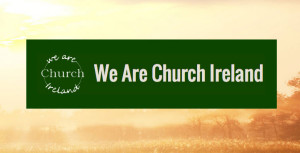Colm Holmes of We Are Church Ireland reports that almost two thirds of Irish Catholic diocesan websites post no data about diocesan finances. This conclusion is based on a WACI survey of Irish diocesan websites, using a questionnaire devised by Voice of the Faithful in the USA.
Colm tells us that this compares badly with the USA, where only a third of diocesan websites fail to publish such financial data.
As Colm argues, the trust of lay people in their church leaders is further challenged by this widespread apparent indifference to financial transparency. We could add that there is no evidence that those leaders have ever set out systematically to measure the loss of trust caused by the scandals of recent decades – or the effect of this upon church attendance. Is there any strategy for regaining that trust? If there was, would not financial transparency be an essential part of it?
Here below is the WACI report:
~*~
Diocese of Ossory is top of Transparency League
62% post no Financial Statements on their websites
A recent analysis by Voice of the Faithful (VOTF) in the USA showed that 34% of 177 dioceses did not include any financial information about their diocese on their websites. But our 26 Irish dioceses are far worse with 62% having no financial information on their websites!
Pope Francis has put a strong emphasis on financial reporting and transparency, though he has suffered several public reverses! Strangely enough, Canon Law does not require financial reporting by dioceses. But with all monies for the church raised by donations from all the people of God over many centuries, surely in the 21st century our dioceses should be publishing annual financial reports?
In Ireland the drive for financial reporting and transparency has come from the Charities Act (2009) and the Irish dioceses come under this act, as well as the UK Charities Acts 2008 and 2013. There are numerous Financial Statements in the Companies Office covering many dioceses, parishes and trusts. But in this day and age the website is the shop window for all organizations and that is where this information should be available in each diocese.
The VOTF analysis is based on 10 questions and the same questions were used to analyse the Irish dioceses.
| Table 1: Dioceses Transparency Scores | |||
| Diocese | Score | Audited | |
| Maximum score: 60 | Accounts | ||
| on website | |||
| 1 | Ossory | 35 | Yes |
| 2 | Down & Connor | 32 | Yes |
| 3 | Dublin | 30 | Yes |
| 4 | Elphin | 30 | Yes |
| 5 | Cork & Ross | 27 | No |
| 6 | Limerick | 25 | Yes |
| 7 | Ferns | 24 | No |
| 8 | Cloyne | 22 | No |
| 9 | Killala | 22 | No |
| 10 | Clogher | 17 | No |
| 11 | Kildare & Leighlin | 17 | No |
| 12 | Armagh | 15 | No |
| 13 | Cashel & Emly | 15 | No |
| 14 | Derry | 15 | No |
| 15 | Galway, Kilmacduagh & Kilfenora | 15 | No |
| 16 | Raphoe | 15 | No |
| 17 | Waterford & Lismore | 15 | No |
| 18 | Achonry | 12 | No |
| 19 | Dromore | 10 | No |
| 20 | Kerry | 10 | No |
| 21 | Killaloe | 10 | No |
| 22 | Tuam | 10 | No |
| 23 | Ardagh & Clonmacnoise | 5 | No |
| 24 | Clonfert | 5 | No |
| 25 | Kilmore | 5 | No |
| 26 | Meath | 5 | No |
Congratulations to Ossory who top the table with their audited 2016 Financial Statements available on their website. But it is disappointing to see Armagh in mid table, though we found a note on their website saying the proper publication of financial statements …. is a priority. Also disappointing is to see a large diocese like Meath at the bottom of the table.
It is of concern that only 5 of our 26 dioceses publish audited accounts on their websites. A further 5 publish some financial data. That still leaves 16 of our dioceses who provide no financial data on their websites. Is this back to the need-to-know thinking where the laity are routinely excluded from such information? The level of trust in our church institutions has declined dramatically in recent years. With the decline in male-only-celibate vocations the laity are being asked to take on many more roles in supporting our church. Surely the publication of audited Financial Statements is a basic requirement for rebuilding trust?
In summary the 2 main points are:
- Only 38% (10/26) posted some financial data on their websites. This compares with 66% for the USA.
- Only 58% identify the members of their Finance Committee on their websites. This compares to 49% in the USA.
Colm Holmes
We Are Church Ireland



0 Comments